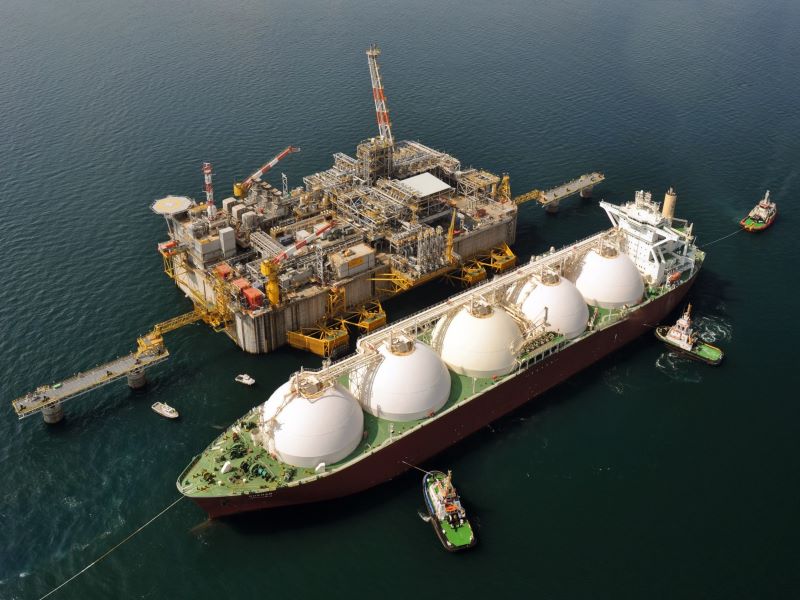In 2021, China imported nearly nine million tonnes of LNG from Qatar, equivalent to 11% of the country’s total LNG imports.
China’s national oil firms are in “advanced talks” with Qatar to invest in the world’s largest liquified natural gas (LNG) project, North Field East expansion, and potentially purchase its fuel, under long-term contracts.
The partnership would be the first such act between the two countries which are considered the world’s top LNG consumers and producers. This comes as there have been reports that Doha is looking to expand its Asian client base for its global energy export.
Government-controlled CNPC and Sinopec are expected to invest a 5% stake each in two separate export trains, which are part of the North Field expansion project, people familiar with the matter told Reuters.
Qatar’s possible LNG supply contract will help China “create a buffer” against the constant price fluctuations as well as aid in diversifying its imports, Reuters reported.
The United States and Australia, two of Beijing’s major suppliers, are “at a low point,” with Russia -another major supplier. Moscow’s invasion of Ukraine has led to multiple sanctions, making China keen on joining as part of Doha’s major Asian buyers.
China regards oil as a “strategic bridge fuel” to use LNG instead of coal as part of its aim to lead a carbon neutral energy industry by the year 2060, Reuters said.
Qatar was China’s largest LNG supplier after Australia in the first five months of 2022, data on Refinitiv Eikon showed. Beijing’s share of LNG imports from Doha spiked to 24.9% in the period from January to May 2022, in contrast to its 11.7% standing in January to May of 2021.
“The participation, even of a small stake, would give Chinese direct access to the highly globalised project and learn its management and operational expertise,” one of the sources, a senior Beijing-based industry official, told Reuters.
The Gulf country treats each export train as one joint venture and CNPC and Sinopec will invest in one train each, the sources further detailed.
The nearly $30 billion North Field Expansion includes six LNG trains that will drastically increase Qatar’s liquefaction capacity by 64% by 2027.
The units have the capacity to produce eight million tonnes of LNG per year.
The current standing of 77 million tonnes per annum (mtpa) will jump to 110 by the year 2025. During the first phase, four mega-trains will lead the productions.
The second phase, known as the North Field South Project, will boost the capacity from 110 mtpa to 126 mtpa by 2027. This would make Qatar the world’s single largest producer of LNG.
CNPC and Sinopec are also looking to negotiate with state-run QatarEnergy to buy up to four mtpa of LNG each for up to 27 years, in what would be the single-biggest purchase deals of the “super-chilled fuel between the two nations,” Reuters said.
Talks are centred around the pricing of long-term supply deals that will be linked to the global oil market, one of the sources informed Reuters.
Asian clients are expected to constitute half the market for the project, with EU buyers making up the rest, QatarEnergy’s chief executive said last week.
“Chinese participation in the trains are more of a financial investment as the stake is very small. The key is the price negotiations for the long-term gas offtakes,” the third source told the news agency.
Exxon Mobil Corp, Shell, and ConocoPhillips have also placed bids to be partners in Qatar’s expansion of the world’s largest LNG project.
Sinopec had signed a 10-year agreement with QatarEnergy, then-known as Qatar Petroleum, in 2021. Since 2009, China has received more than 62 million tonnes of LNG from Qatar.
In April, it was reported that QatarEnergy is exploring whether to add an extra unit to the project and interest amongst its customers. Those customers include some in China.







